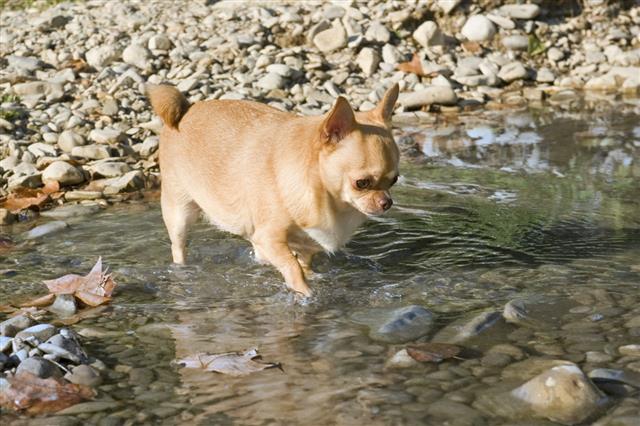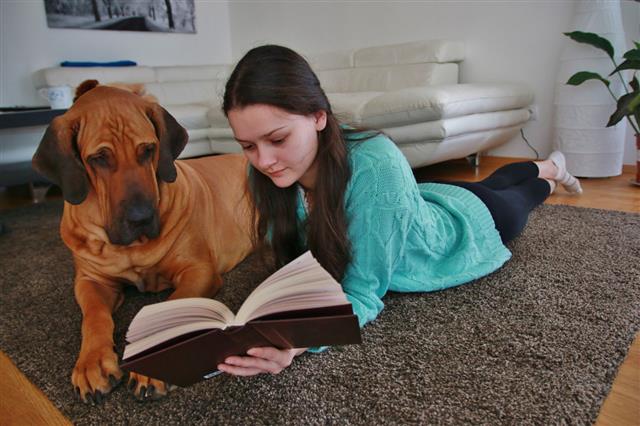One of the most commonly asked questions by dog owners is, how long is the gestation period for dogs. This article gives an elaborate insight into the various health parameters related to expecting dogs.
The gestation or pregnancy period in dogs begins from the first breeding session or fertilization until the birth of the puppies. Though the period may vary as per the size or breed of the dog, usually, the gestation for small dogs as well as big dogs lasts for about 60 to 63 days, or 9 weeks. Female dogs have menstrual cycles throughout their lives and are capable of reproducing for as long as they live.
A female dog attains puberty at ages ranging from six to twenty-four months, and mates when she’s in estrus or heat. The estrus cycle is divided into four stages.
- Proestrus Stage: Also known as preheat period, it lasts for 4-9 days.
- Estrus Stage: In this stage, the female dog allows the male dog to mate. This stage usually lasts for 4-13 days.
- Diestrus Stage: This stage lasts for 2-3 months and involves symptoms like pregnancy, swelling of the mammary glands, and elevation of progesterone levels.
- Anestrus Stage: This phase is also called the resting period that lasts for 5 months, in which the female dog prepares herself for the next heat cycle.
Normally, one can’t predict whether or not a dog is pregnant even after 5 weeks of conception. Since there’s no standard blood or urine test to confirm the pregnancy, it’s recommended to take the pet to a veterinarian. You can also confirm the dog’s pregnancy by making her undergo a radiograph (X-ray), 45 days after fertilization.
Signs During the Gestation Period
Early Signs
- Decreased appetite is one of the initial signs that you may observe in your pet. She may eat less or experience morning sickness during the initial few weeks of pregnancy.
- She may experience feelings of exhaustion and show a sudden decrease in her routine activities due to certain hormonal changes.
- Nipple growth is the most prominent sign and as the gestation period progresses, breast material starts developing beneath the nipples, which eventually increases the preparation for milk production.
Progressing Signs
- You may observe an increase in appetite after two to three weeks into the pregnancy.
- There may be swelling in the nipples and the color may also become more intense.
- An increase in the body weight and abdominal thickness can be observed after one month into the pregnancy.
Late Term Signs
- You may observe definite growth in the abdominal size depending upon the size, breed, and number of litter she’s carrying.
- One can observe and feel puppy movement during the last stages of the pregnancy.
- You may also notice a secretion of white fluid from the nipples, a sign that the dog is ready to lactate.
Behavioral Changes
You may observe many conspicuous changes in your dog’s behavior during the gestation period, especially during the last few weeks of the pregnancy, as the dog may show symptoms like restlessness, anxiety, and may also seek solitude or isolation. With the increasing discomfort due to the enlarged abdomen, she may also get a bit aggressive. Hence, make sure you warn children about not bothering her. She may also soil the house and tear papers and clothes in an attempt to make a bed or ‘nest’ to give birth.
Diet
A well-balanced and nutritious diet is essential for healthy puppies and for the health of the mother. The diet should include lots of protein supplements like eggs, lean muscle meats (not pork), or liver during the initial few weeks. Feed her with increased quantities of food in various small meals, particularly during the last few weeks. Make sure clean water is always available as the fluid intake noticeably increases at this stage. You can also consult the veterinarian for a special diet or dog food if necessary.
During the normal gestation period for dogs, moderate exercises, short walks, or small periods of gentle play can keep your pet active, as neither excessive rest nor strenuous exercise is recommended for her health. Make sure that being a responsible owner, you provide her with the extra care, love, and attention that is needed during these days.










